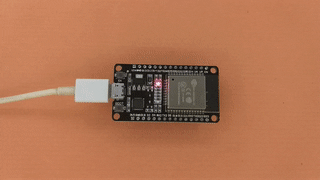Install
1) Install dependencies
I am going to setup for Arch Linux but the steps are similar for all the other Linux distributions. You can find the official getting started guide with steps for Ubuntu here.
- Upgrade the OS
$ sudo pacman -Syyu - Installing the packages
$ sudo pacman -S base-devel git cmake ninja gperf ccache dfu-util dtc wget python python-pip python-setuptools xz file make gcc multilib-devel sdl2 tkVerify the versions of main dependencies
$ cmake --version $ python3 --version $ dtc --version
2) Clone Zephyr
- Install
westtool via pip$ pip3 install west - Get Zephyr source code
$ mkdir ~/zephyrproject $ west init ~/zephyrproject $ cd ~/zephyrproject $ west update - Export Zephyr Cmake package
$ west zephyr-export - Install Zephyr python dependencies
$ pip3 install -r zephyr/scripts/requirements.txt
3) Cloning the Zephyr SDK
I will be using the /opt folder to store the Zephyr SDK. I already have write access. If you get any errors of permission denied. I suggest you to chown the /opt folder.
- Download and Verify SDK
$ cd /opt $ wget https://github.com/zephyrproject-rtos/sdk-ng/releases/download/v0.15.2/zephyr-sdk-0.15.2_linux-x86_64.tar.gz $ wget -O - https://github.com/zephyrproject-rtos/sdk-ng/releases/download/v0.15.2/sha256.sum | shasum --check --ignore-missing - Extract the SDK
$ tar xvf zephyr-sdk-0.15.2_linux-x86_64.tar.gz - Run setup script
$ cd zephyr-sdk-0.15.2 $ ./setup.sh
This setup script needs to be run only once or whenever you change the location of the SDK folder.
- Install
udevrules$ sudo cp ~/zephyr-sdk-0.15.2/sysroots/x86_64-pokysdk-linux/usr/share/openocd/contrib/60-openocd.rules /etc/udev/rules.d $ sudo udevadm control --reload
3) Building the Hello, World
The list of supported boards can be found here. I am going to use ESP32 for this example.
cd ~/zephyrproject/zephyr $ west build -p always -b esp32 samples/hello_world/The
-poption does a pristine build. It is used to build when there is any changes done to the CMake.
A successful build looks like this  Now flash the board with
Now flash the board with
$ west flash
To open the serial monitor
$ west espressif monitor
You should see the similar output 
4) Building the blinky
Now, let’s try to blink the builtin LED on ESP32. The sample is in zephyr/samples/basic/blinky
$ west build -p -b esp32 samples/basic/blinky
If you encounter build errors like this  It means that we need to add an overlay file with the board support. This file can be added for any unsupported board with the
It means that we need to add an overlay file with the board support. This file can be added for any unsupported board with the <board-name>.overlay.
Create an esp32.overlay file in zephyr/samples/basic/blinky/ and add the following contents
/ {
aliases {
led0 = &myled0;
};
leds {
compatible = "gpio-leds";
myled0: led_0 {
gpios = <&gpio0 0 GPIO_ACTIVE_LOW>;
};
};
};
It will blink the LED connected to GPIO 0 (BUILTIN_LED). Now try to build
$ west build -p -b esp32 samples/basic/blinky
And flash it with
$ west flash
The board will start to blink </br> 